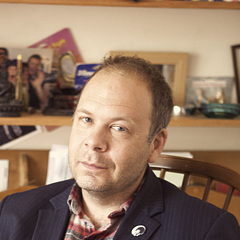
Dr Ben Sessa
Dr Ben Sessa (MBBS BSc MRCPsych) is a consultant child and adolescent psychiatrist working in adult addiction services and with custodial detained young people in a secure adolescent setting. He trained at UCL medical school, graduating in 1997. He is interested in the developmental trajectory from child maltreatment to adult mental health disorders. Dr Sessa is currently a senior research fellow at Bristol, Cardiff and Imperial College London Universities, where he is conducting the UK’s first clinical studies with MDMA-assisted therapy for the treatment of PTSD and alcohol dependence syndrome. In the last ten years he has worked on several UK-based human pharmacology trials as study doctor or as a healthy subject administering and receiving test doses of LSD, psilocybin, MDMA and ketamine. He is the author of several dozen peer-reviewed articles in the mainstream medical press and has written two books exploring psychedelic medicine; The Psychedelic Renaissance (2012) and To Fathom Hell or Soar Angelic (2015). In speaking publicly at universities and medical conferences, Dr Sessa is outspoken on lobbying for change in the current system by which drugs are classified in the UK, believing a more progressive policy of regulation would reduce the harms of recreational drug use and provide increased opportunities for clinical psychedelic research. He is a co-founder and director of the UK’s Breaking Convention conference.
From childhood trauma to adult addiction: Finding a way forward with MDMA psychotherapy
As a child psychiatrist I take a developmental perspective to adult mental disorder and addictions. High rates of treatment resistance for PTSD and the challenge of tackling unremitting addictions with high rates of relapse leaves me feeling clinically impotent as a doctor. My work with abused children, seeing them grow into damaged and addicted adults, has brought me to the door of MDMA Therapy as psychiatry’s best opportunity for a therapeutic breakthrough.
I illustrate my talk with two on-going MDMA studies that I am leading in the UK. One is a study based in Bristol, an open-label feasibility study using a course of MDMA-assisted psychotherapy to treat alcohol use disorder. The other is a controlled randomised double-blind crossover study, based in Cardiff, using fMRI neuroimaging to explore the mechanism of how MDMA works to reduce the fear response and boost empathy in patients with PTSD.
Click here for presentation slides.
November 2017